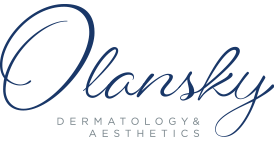A comprehensive skincare routine is your best line of defense for preventing signs of aging and promoting healthy, vibrant skin year-round. While you should take care of your skin 365 days a year, different seasons call for different approaches. As days become longer and warmer and the humidity rises, you’ll want to make a few key changes to your routine. Here’s how you can transition your skincare regimen from winter to spring.
Incorporate SPF
First and foremost, your skincare routine absolutely must include SPF. While you should be using sun protection year-round, most of us spend more time outdoors when the warmer weather arrives. To that end, the SPF in your foundation or tinted moisturizer probably won’t suffice.
In the winter, SPF 30 might be enough, but you’ll want an SPF of 50 or higher during the spring and summer. This probably means you’ll need a sunblock that’s separate from your makeup, and you’ll want to reapply it at regular intervals if you spend a lot of time outside. Look for a non-greasy, mineral-based formula to prevent clogged pores and the absorption that can come with chemical formulas.
Choose a Lighter Moisturizer
When humidity levels are higher, your skin retains more moisture. Swap out your heavier winter moisturizer for a lightweight, water- or hyaluronic acid-based product. In doing so, you’ll help to reduce clogged pores and the breakouts that come with them.
Exfoliate Regularly
Warmer weather often means more exposure to sweat and the outdoor elements. Regular cleansing is a must, but don’t rely on your cleanser alone. To slough away dead skin cells, you’ll need to exfoliate regularly. Skip the harsh scrubs, which can irritate skin, and use a product with a bit of glycolic acid instead.
Be Careful with Retinol
Retinol is an anti-aging powerhouse. The vitamin-A based compound decreases the appearance of fine lines and wrinkles by stimulating collagen production. It does so by accelerating cellular turnover, which replaces old cells with fresh ones. Since new cells are more sensitive to sun exposure, your skin is more likely to burn with retinol use. You may therefore want to cut back on your retinol application if you’ll be spending time outside, or apply it at night instead of in the morning.
Have a Spring Cleaning
If you look at the bottom of your cosmetic product containers, they should have a small sign that indicates their period after opening (PAO). This is the amount of time you can use the product for after it’s been opened (12M means they can be used for 12 months, for example).
Up to 90% of used makeup products contain bacteria, some of which can cause harmful infections like pink eye. The change of seasons is a great time to go through your medicine cabinet and makeup bag to toss any old products and makeup that could be harboring germs.
No matter what time of year it is, Olansky Dermatology has your skincare needs covered. From general care to cosmetic services, our dermatologists offer a broad range of treatments and solutions to address all your skin concerns. Schedule an appointment online or by calling (404) 355-5484.


